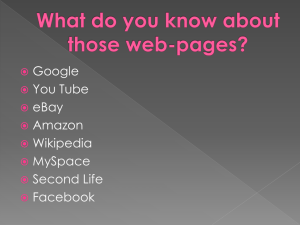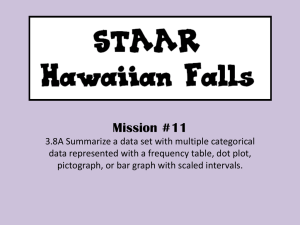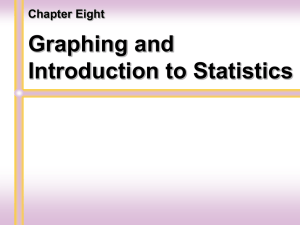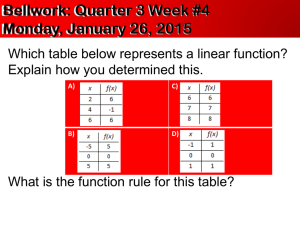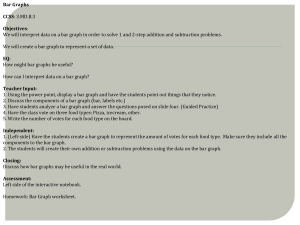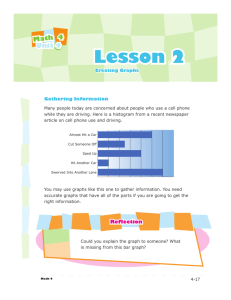Graphs - Mr. Wei`s Math 8 Page
advertisement
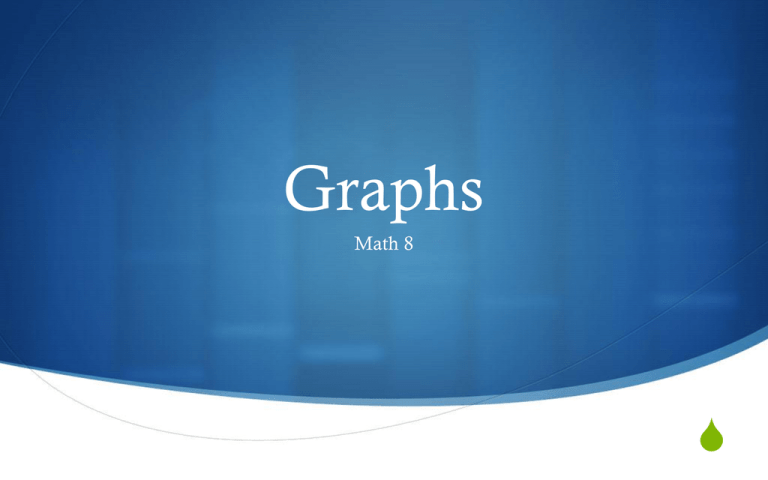
Graphs Math 8 S Introduction to types of graphs S Graphs are pictures of data S They can help you communicate your ideas S We are going to identify advantages and disadvantages of different types of graphs Before we graph: gather data S How many times did you use a vending machine last week? Number of times using vending machine Number of students 0 times 5 1~4 times 8 5~9 times 4 10 or more times 1 Pictograph 0 times 1~4 times 5~9 times 10+ times = 1 student Pictograph Advantages of Pictograph Disadvantages of Pictograph • Symbols are visually appealing • Lengths of rows shows quick comparison • The key can be used to calculate total numbers • There may be a lot of symbols to draw • Difficult to read and draw partial symbols • Graph does not show percentage of population Circle Graph (pie chart) 6% Number of students 28% 22% 44% 0 times 1~4 times 5~9 times 10 or more times Circle Graph Advantages Disadvantages • Shows parts of the whole • Each part shows percent of respondents • Sizes of each part can be used to compare responses • Does not show the number of respondents • We cannot find out total number of responses • Difficult to draw accurately Bar Graph Students’ Vending Machine Usage 10 8 6 4 2 0 Number of Students 0 times 1~4 times 5~9 times 10 or more times Bar Graph Advantages Disadvantages • Heights of the bars can be used to compare responses • The scale on the vertical axis can be used to calculate total number of responses • Easy to draw • The graph does not show percent of responses of each category • Can be difficult to read accurately if the bars don’t end on a line Line Graph Jill's Weekly Deposit 500 400 300 200 100 0 Jill's Weekly Deposit Week 1 Week 2 Week 3 Week 4 Line Graph Advantages Disadvantages • Easy to read and draw • Can be used to estimate values between points • Can be used to show “trend” • Best used to show information over time • Sometimes hard to read when data is not on grid lines • Does not show percent of whole

